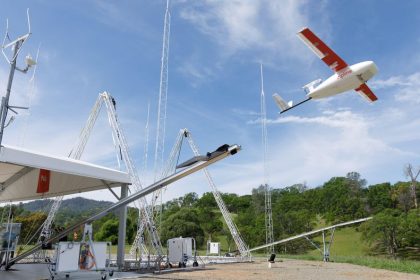Four Ghanaian startups have been shortlisted for the Africa Prize for Engineering Innovation by the Royal Academy of Engineering.
The Africa Prize for Engineering Innovation recognises ambitious African innovators developing scalable engineering solutions to local challenges.
The four Ghanaian startups include:
- BACE API, Charlette N’Guessan from Ghana – a system that uses live facial recognition technology to verify identities and prevent financial and online identity fraud
- EcoRide, Bernice Dapaah from Ghana – bamboo bicycles made by Ghanaian women and youth from sustainable materials and recycled parts
- GrainMate, Isaac Sesi from Ghana – a simple handheld meter to accurately measure the moisture content of grains to prevent rotting, insect infestation and quality reduction
- Lab and Library on Wheels, Josephine Godwyll from Ghana – a mobile, solar-hybrid cart with gadgets and e-learning resources to encourage reading and teach STEAM subjects in under-resourced schools
Launched in 2014 by the Royal Academy of Engineering, the annual Africa Prize awards crucial commercialisation support to innovators who are transforming their local communities across Africa.
A unique package of support will be provided to the shortlisted entrepreneurs over the next eight months to help them accelerate their businesses. The benefits of selection include comprehensive and tailored business training, bespoke mentoring, funding and access to the Academy’s network of high profile, experienced engineers and business experts in the UK and across Africa.
Following this period of support, four finalists are selected and invited to pitch their improved innovation and business plan to the judges and a live audience. A winner is selected to receive £25,000, and three runners up receive £10,000.
“For six years we have been humbled to work with African entrepreneurs who use engineering to shift how we think about problems, developing disruptive technologies for everything from energy and agriculture to housing, transport and finance,” said Rebecca Enonchong, Africa Prize judge and Cameroonian entrepreneur.
“These are the local entrepreneurs who are transforming Africa, and we are once again honoured to guide and learn from the brightest minds chosen for the Africa Prize shortlist.”
The other shortlisted technologies and candidates are:
- Aquaprotein, Jack Oyugi from Kenya – an affordable protein supplement for animal feed, made from invasive water hyacinth
- CATHEL, Catherine Tasankha Chaima from Malawi – an affordable antibacterial soap made from agricultural waste and other plant-based extracts
- CIST Ethanol Fuel, Richard Arwa from Kenya – a clean cooking ethanol made from invasive water hyacinth
- DryMac, Adrian Padt from South Africa – a containerised drying system that uses burning biomass instead of electricity to dry and preserve crops
- Eco Water Purifier, Timothy Kayondo from Uganda – a digital system that turns bones, cassava peelings, coconut shells and other waste into an activated carbon water filter
- Farmz2U, Aisha Raheem from Nigeria – tech solutions that help farmers and families prevent food waste and enhance nutrition
- Garbage In Value Out (GIVO), Victor Boyle-Komolafe from Nigeria – automates and digitises the collection, processing and sale of recyclable materials
- PapsAI, Dr William Wasswa from Uganda – a low-cost digital microscope slide scanner and platform that diagnoses and manages cervical cancer in resource-constrained areas
- Remot, David Tusubira from Uganda – a digital platform that connects to off-grid solar systems to allow users to manage and pay for them remotely
- Safi Organics, Samuel Rigu from Kenya – a novel process that turns crop waste into a range of affordable organic fertilisers
- Solar Jiko, Justine Abuga from Kenya – a heat storage system that allows rural schools to cook food quickly and easily without firewood
- Tree_Sea.mals Mini-Grid, Tracy Kimathi from Kenya – a solar system that powers communal refrigeration storage spaces in rural Kenya
Source: Royal Academy Of Engineering










